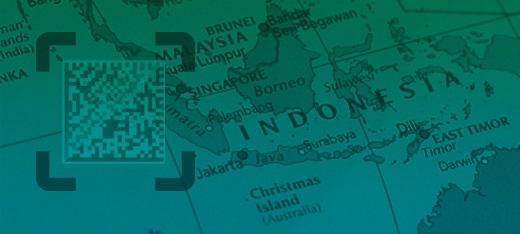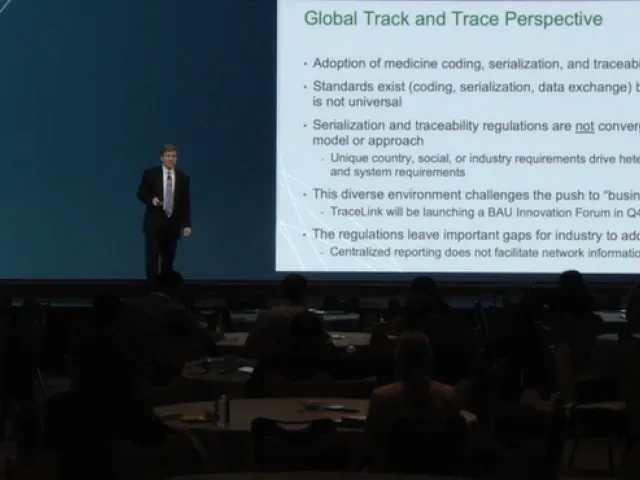Table of contents
Indonesia’s pharmaceutical market is the largest in the Southeast Asia region, with sales of medicines reaching roughly $76 billion in recent years. Now, the Indonesian National Agency of Drug and Food Control (Bedan Pengawas obat dan Makanan, or BPOM) is ramping up efforts to further secure the pharmaceutical supply chain and protect patients with several initiatives designed to revolutionize package labeling and product tracking.

In this article, you’ll learn about some of these recent initiatives and how TraceLink helps organizations operating in this region overcome the compliance challenges that accompany these regulatory updates. With an extensive TraceLink Community that represents 1,600+ global companies and 20+ flexible compliance solutions, TraceLink provides our customers with everything they need to stay ahead of compliance requirements.
What’s new in Indonesia?
BPOM has spent the last few years proactively expanding and evolving its pharmaceutical track-and-trace systems, which cover medicines, traditional medicine, food supplements, cosmetics, processed food, and certain raw materials. In 2022, the organization replaced a previous law conceived in 2018 that mandated serialization and traceability. The new law featured several major changes, chief among them being a shift in serialization deadlines, which are set on a rolling basis depending on when a product’s authorization was renewed electronically.
In recent months, BPOM has taken further steps to enhance patient safety. One initiative the organization has announced is a transition from paper-based to electronic leaflets (e-leaflets). These leaflets will be accessible via a barcode on the product’s package, giving healthcare providers and patients the ability to get information about the product through a quick scan.
What are the challenges associated with meeting Indonesia compliance requirements?
Pharmaceutical companies that distribute products within Indonesia must comply with labeling requirements for serialization and report certain events to the BPOM Track and Trace Anti-Counterfeit (TTAC) website.
The law covers two aspects of product marking, data management, and compliance reporting, depending on product classification:
- Identification: A barcode that identifies a product in the market and verifies the legality of a product.
- Authentication: A serialized product identifier and 2D barcode used in reporting and to verify a product’s authenticity by GTIN, batch (lot) number, expiry date, and serial number.
Although the initial central system is live, the specific compliance requirements, data management processes, and reporting needs for companies with products are still evolving. This uncertainty can lead to difficulty in interpreting how any one specific company’s products are impacted. Since deadlines are specific to product authorizations, pharmaceutical manufacturers need to review their portfolios in detail and understand which products are subject to the deadline and when.
How does TraceLink help pharmaceutical manufacturers serving Indonesia stay compliant?
For pharmaceutical supply chain companies serving the Indonesian market, TraceLink provides a compliance solution purpose built to meet regional compliance requirements and runs educational community workshops and events to deliver additional support.
Pharmaceutical manufacturers can use the TraceLink Indonesia Compliance solution to meet reporting requirements for BPOM Regulation 22-2022. The TraceLink Indonesia Compliance solution, natively integrated into TraceLink’s global compliance platform, offers pharmaceutical manufacturers a standardized approach to meeting these reporting requirements. With TraceLink, existing integrations such as commissioning, aggregation, and shipping remain the same, along with integrations to Line Management Systems and CMOs serving the Indonesian market. Indonesia Compliance uses a set of advanced business logic and rules to detect specific events that require a report to be generated. These reports are generated either automatically through event triggers or manually using the web UI or API, after which TraceLink automatically submits the reports to Indonesia's national reporting system.
TraceLink also covers Indonesia compliance in our Global Compliance Special Interest Group whenever new developments occur. Most recently, we gathered customers serving this region for a special Indonesia workgroup. There was loose agreement on the need to engage with BPOM to answer questions around the technical specifications for compliance and TraceLink has continued to monitor Indonesia through our customer contacts and through industry associations such as GS1.
TraceLink can help you comply with new and evolving regulations in Indonesia—and around the world. Contact us to learn more about our emerging Indonesia Compliance solution, or for solutions for the Eurasian Economic Union and other emerging markets.





